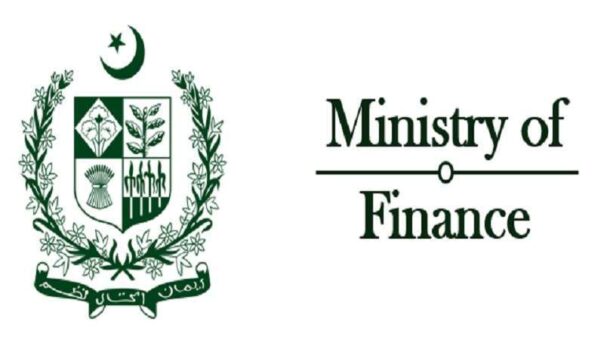ISLAMABAD: The finance ministry has estimated that the tax collection to reach Rs5.83 trillion during current fiscal year 2021/2022 (FY22).
In its monthly economic update – August 2021, the finance ministry said that in FY2021, tax revenue increased by 18.4 percent, whereas in July FY2022, tax collection climbed up by 42.5 percent, indicating a good start to the new fiscal year. For FY2022, the tax collection is expected to reach Rs. 5.83 trillion.
“To achieve the target, the government is pursuing a comprehensive tax policy that focuses on expanding the tax base by identifying new taxpayers, gradually eliminating exemptions and concessionary provisions, along with lowering tax rates.”
It said that during FY2021, the fiscal consolidation efforts remained on track. The successful consolidation achieved on the back of prudent expenditure management and revenue mobilization efforts.
For FY2022, the fiscal deficit is expected to reduce further.
These achievements in the fiscal sector are important, especially when Pakistan like the whole world is constantly battling the resurgence of COVID 19.
The persistence in consolidation efforts would pave the way to create fiscal space that would enable the government to withstand any untoward situation.
The Monthly Economic Indicator (MEI) is based on combining monthly data of indicators that are proven to be correlated with GDP at constant prices.
In July 2021, The MEI shows continued strong growth, mainly driven by several factors. First, an expected continued strong YoY growth of LSM in July. Furthermore, as observed in July continued cyclical uptrend in the main trading partners, continued strong growth in imports and deceleration of inflation.
According to Balance of Payments (BoP) data, imports of goods and services spiked in June 2021, but return to normal level in July 2021.
Usually, both June and July, but especially June, are characterized by positive seasonal effects. This positive seasonal impulse is expected to disappear in August.
On the other hand, other factors, such as the recent increases in international oil prices and the ongoing revival of economic growth, may stimulate imports. It is expected that imports of goods and services will settle at around $ 6 billion in August 2021.
Contrary to imports, exports of goods and services, according to BoP data, usually experience negative seasonality during June through September.
The moderation of this seasonal effect, together with the ongoing strong recovery in Pakistan’s main export markets, the momentum in domestic economic dynamism and specific Government policies to stimulate exports are expected to guide exports of goods and services towards the $ 3 billion in August and beyond in subsequent months.
It is expected that trade deficit in goods and services could stabilize to approximately $ 3 billion in August with expectations about remittances to be stabilized around $ 2.5 billion and taking into account the other secondary income and primary income flows, the current account would remain in deficit at moderate monthly levels of around $ 0.5 billion in the coming month.
These expectations depend on the absence of any unexpected negative shocks which may be generated by the potential slowdown of the economic revival abroad (due to loss of confidence, inflation fears, uncertainty for tapering of monetary accommodation and geopolitical risks, etc.). An international and domestic upsurge in COVID-19 infections remains an important risk factor.
The finance ministry said that recent developments in Pakistan’s macroeconomic indicators are positive.
In absence of any major unexpected negative shocks, the economy is moving on a balanced and sustainable growth path.
The challenge remains to elevate this sustainable growth path to a higher level. This requires extending Pakistan’s production capacity and ensuring that a sufficient proportion of this additional production is exported, besides satisfying the needs of domestic consumers.
Enhancing production capacity and increasing its efficiency is not possible without directing a larger proportion of the available and future income towards investments, instead of consumption.


